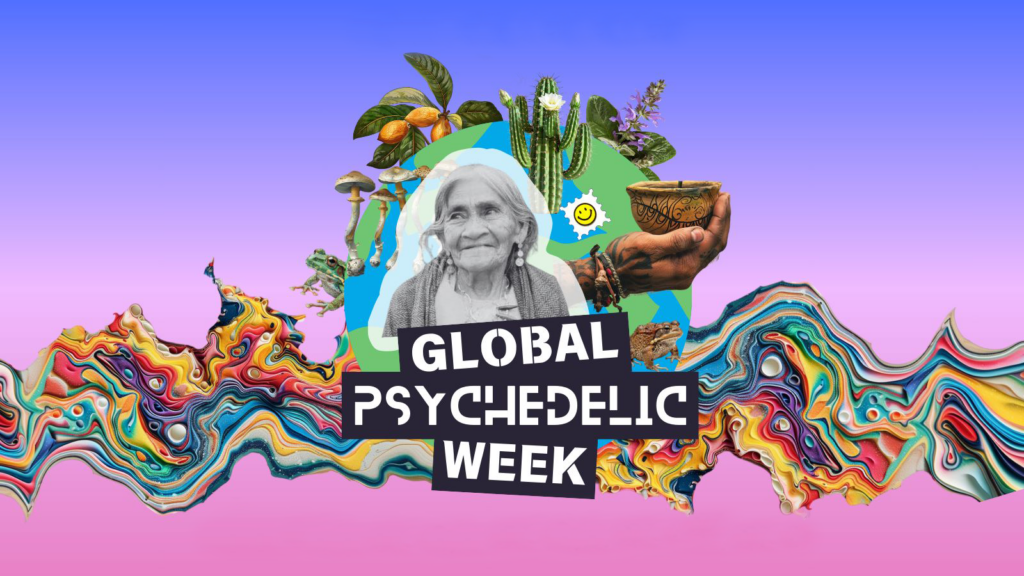The following is excerpted from Doctors Are More Harmful Than Germs: How Surgery Can Be Hazardous to Your Health –– And What to Do About It, published by North Atlantic Books.
Hippocrates
and Paracelsus, whom doctors hail as pioneers in the field, both practiced
medicine more closely aligned with homeopathy than with modern, scientific
medicine. Samuel Hahnemann, considered the father of homeopathy, tested his medicines
on volunteers. (This was the first "evidence-based" medicine.) Hahnemann's
research into each remedy's effectiveness helped to spread the popularity of
homeopathy around the world.1 By 1900, homeopathy was a relatively
old medical tradition. In the United States at that time, 43 percent of medical
schools taught homeopathy, including one of the best schools in the world.
Homeopathic formulations could be purchased through the Sears catalog by
individuals who wished to care for their own health.2
However,
the profession suffered greatly from infighting, complacency, the rise of the
pharmaceutical industry, and opposition from modern, scientific medicine.3
The American Medical Association formed in 1847 to "improve the ethics" of medical
practitioners and to put out of business those engaged in "traffic in secret
remedies and patent medicine." 4 Homeopathy gained the unforgivable
label of "quackery," its science and methods called into question by the new
doctors directly competing with homeopaths for business. There were two other
important reasons for the disdain of homeopathy by doctors: the idea that a
person's illness was uniquely individual, and the fact that its remedies were
inexpensive.
As the
fledgling pharmaceutical industry grew in the early twentieth century, it
supported AMA physicians and their education with money. Physicians and
institutions responded with supportive research for the drug companies.
Initially, no drug could be advertised in the AMA magazine unless the organization
had approved it for therapeutic use. These actions laid the groundwork for a
tight collaboration between doctors and drug makers, and it spelled the death
knell for homeopathy as a mainstream, acceptable practice in the United States.5
The Politics
of Modern Medicine
The entire modern
medical system was built on the premise of naming the symptoms so that a drug
could wage war against them. We have wars on people, wars on drugs, and wars on
disease. We are told to fight our bodies, our feelings, our creativity — we are
told these things oppose natural order. We are told that our own body works
against itself by developing autoimmune disorders. Why on earth would our body
try to harm itself? This world, this earth, exists to fulfill all of our needs.
Nature is not meant to kill us.
The short
story about homeopathy could just as easily be applied to the fields of
chiropractic, osteopathy, acupuncture, nutrition, massage therapy, naturopathy,
and many, many more specialties. Chiropractors won a landmark decision in 1987 when
an antitrust lawsuit was settled in their favor. In her published opinion, the
district court judge stated that the AMA had conducted "a nationwide conspiracy
to eliminate a licensed profession." This campaign included the encouragement
of medical doctors to slander chiropractors as quacks, as well as to withhold
treatment from patients who pursued chiropractic treatment. Noting the
long-term damage to the reputation of chiropractic, the judge stated, "it is
ethical for a medical physician to professionally associate with a
chiropractor." 6
What is
common among the professions listed above is that they cost far less than
drugs, surgery, imaging, and laboratory tests. The AMA, through its state
medical boards, in conjunction with the FDA and other local, state, and federal
agencies, keeps a close eye on these practitioners in case they might claim to
"cure," "diagnose," "treat," or "prescribe." Each profession noted has, at one
time or another, experienced relentless legal pursuit.
Any non-drug sold in this country must follow strict rules about labeling to
avoid suggesting any "medical" or "health" benefit. Many manufacturers have
been sued over such
claims. Coca-Cola was sued in 2009 over alleged claims that its VitaminWater
product has health benefits.7 Many would call these lawsuits
spurious — just as many people would say that quacks are everywhere.
These
actions continue despite the fact that each state sets the laws and guidelines regarding
what constitutes a health profession and who may practice it, from education to
licensing and continuing education requirements. Very few states allow these practitioners
to work within the modern health insurance system. Membership in the AMA is
open only to medical doctors — those with MD after their name — and, since 1970,
osteopaths.
Remember
French biologist Antoine Béchamp? His revelations were marginalized because
they conflicted with those of a more politically astute researcher:
bacteriologist Louis Pasteur. Pasteur and Béchamp's political fight at the end
of the nineteenth century set the stage for many of the factors that drive the
politics of modern medicine.
The Need for Change is Evident
It's kind
of funny to me, in a way, that I keep reading opinions by doctors like Dr.
David Newman, who practices in a New York hospital emergency room. "We need
doctors and patients to conceive of medicine and health in a totally different
way than they have been taught in the last twenty to thirty years," he states,
noting that, "In American culture, prescriptions and procedures have become
surrogates for real health care and real dialogue." 8 Although Dr.
Newman was making his point to support comparative effectiveness research, the
truth of his remarks goes deeper. If you're a patient, it's easy to experience "real
health care and real dialogue" — see any other type of health practitioner!
Every
person has a story to tell about his or her health. A current health problem
has never arisen out of the blue, without warning. Disease and chronic
conditions are not "sneak attacks." The story of a person's health is key to
understanding not just how it arose, but how to address it. No single diagnosis
is completely identical to another. Everyone's journey is different. But, most
doctors don't listen, and if they do, what they hear is debatable: over
three-quarters of doctors don't believe what their patients have to say. 9
Medical professionals end up recording their own impressions of what a
person is feeling, and the result is that they "systematically downgrade the
severity of patients' symptoms," says oncologist Dr. Ethan Basch.10
One woman
came to me with one of the worst cases of rheumatoid arthritis that I've seen.
Another woman cannot sit down or bend over as a result of internal surgical
scars. Both saw their doctors for heavy uterine bleeding. Both were referred for
hysterectomies to deal with the problem. Both also had their ovaries,
appendixes, and gall bladders removed, since the doctors were going to open
them up for the surgery anyway.
They were
advised to remove the additional organs "for prevention."
A male
client went to see his doctor for a PSA test. It was abnormal, so they did a
biopsy, which showed cancer. His doctor told him that if he removed the
prostate gland right away, the guy was "guaranteed" to never experience
full-blown prostate cancer. The guy refused the operation, and his doctor said,
"Okay, come back and see me in three months." Surgery was critical to saving
the guy's life right now, but if he objected, he could wait
and see?
Another woman
was in her eighties when she had cosmetic dental surgery. Her dentist kept her
in the chair for seven hours, and she began to pass out. He continued to work
until they had to call an air ambulance to take her to the hospital. While she
was being carried to the helicopter, the dentist ran alongside exclaiming,
"Your mouth looks beautiful!" Why should you care about these people? Because
they are illustrating an all-too-prevalent attitude of arrogance that exists within
the medical profession. "There is a sensibility among some old-school
clinicians that they have a better sense of their patients' experience than
patients do themselves," observed Dr. Basch. 11 The problem is not
so much that there are jerks in medicine. There are jerks in every occupation.
But in medicine the "attitude problem" can — and does — affect patient care. Dr. Peter
J. Pronovost, who advocates for better attitudes in the name of safety,
explains that until changes were made at Johns Hopkins, where he works, "When
confrontations occurred, the problem was rarely framed in terms of what was
best for the patient. It was: ‘I'm right. I'm more senior than you. Don't tell
me what to do.'" Dr. Pronovost discovered something interesting when he began
to look into the way medical professionals interacted with each other: "in
every hospital in America, patients die because of hierarchy." 12
Attitude
is an ethical issue for the medical community. At least one scholar has
suggested that a doctor be required to change his or her attitude when it is likely
to have a poor effect on his or her ability to practice medicine.13
To the parents of a little girl at Dr. Pronovost's hospital, that effect was
devastating. "The mother and the nurses had recognized that the little girl was
in trouble. But some of the doctors charged with her care wouldn't listen," he
says. "So you had a child die of dehydration, a third world disease, at one of
the best hospitals in the world. The word ‘error' was never spoken. But it was
crystal clear." 14
With
modern, scientific medicine, doing good and not causing harm to the human being
only seems to happen without fail in the presence of adequate regulations. I
ask you, why is that?
Notes:
1. Steven Cartwright, "Origins and History
of Homeopathy"
2. P. Joseph Lisa, The
Assault on Medical Freedom
3. Steven Cartwright, "origins and History
of Homeopathy"
4. American Medical Association, "AMA
History"
5. Nicolas Rasmussen, "The Drug Industry and
Clinical Research in Interwar America"
6. Chester A. Wilk et. Al v. American
Medical Association, 76 C. 3777 (E.D. Illinois 1987)
7. Martinne Geller and Lisa Richwine, "U.S.
Group Sues Coke Over Vitamin Water Health Claims."
8. Tara Parker-Pope, "A Hurdle for Health
Reform."
9. Beth Comstock, "Treating the
Patient-Doctor Disconnect."
10. Denise Grady, "In Reporting Symptoms,
Don't Patients Know Best?"
11. Ibid
12. Claudia Dreifus, "Doctor Leads Quest for
Safer Ways to Care for Patients."
13. Demian Whiting, "Should Doctors Ever be
Professionally Required to Change their Attitudes?"
14. Dreifus, "Doctor Leads Quest for Safer
Ways to Care for Patients."
© 2011 by
Harvey Bigelsen. Reprinted by permission of publisher.
Image by Oonagh Tager, courtesy of Creative Commons license.















